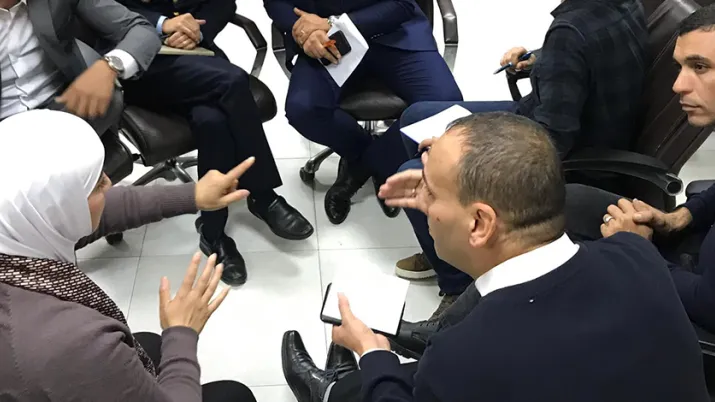Share the page
DIP ECHO – Tunisia
Project
Published on

-
Project start date
-
Status
Closed
-
Project end date
-
-
Financing amount (Euro)
-
€ 1M
-
Country and region
-
Tunisia
-
Funders
This project is supporting the development of the national strategic framework for disaster risk reduction by building local capacities and relying on the involvement of central ministerial levels to strengthen the resilience of territories and populations.
Tunisia wishes to overhaul its national framework for disaster risk reduction (DRR), which dates back to 1991, and to decentralize risk management at local level, by improving coordination between the action of the various elected territorial levels and action by the State.
In response to these needs, the DIP ECHO project :
- Supports the development of the national strategic framework for disaster risk reduction by focusing on local capacity building in urban areas. The aim is to ensure that territories and populations have a certain resilience, in conjunction with an active involvement of the central ministerial levels concerned, based on a collaborative approach
- Supports the disaster-prone municipalities of Bou Salem and Tataouine by organising training and setting up or improving early warning systems and emergency plans.
In the territories of the municipalities of Bou Salem and Tataouine, the project is supporting the deployment of municipal disaster risk reduction systems, in partnership with the governorates and the national institutional level. These two territories are particularly faced with risks of flooding, drought, landslides and sandstorms.
These municipal systems are based on both the implementation of technical solutions for risk prevention and an operational response in the event of a hazard by protecting and safeguarding human and heritage aspects.
This proposal follows on from and is complementary to completed or ongoing projects and should serve as a laboratory of good practices for a future dissemination within an overhauled legal framework.
Our operational strategy
To support the operationalisation of the Tunisian national DRR action framework, the project aims to:
- Provide each municipality with a foreseeable risk prevention document which can complement the urban development plan, in order to reduce the vulnerability of populations and buildings.
- Set up an integrated and shared organisation in each hospital and each school, in order to reduce their vulnerability in the event of an unexpected or anticipated disaster.
- Set up a municipal organisation in Bou Salem for the protection and safeguarding of populations and property. The continuity of community life and the facilitation of the return to normality in the event of major floods are planned and prepared based on a principle of subsidiarity.
To achieve this, Expertise France works with the Ministry of Local Affairs and Environment (MALE), the National Office of Civil Protection, the National Institute of Meteorology, local civil society organisations and the Tunisian Red Cross.
Main project activities
To support the deployment of municipal systems, the project implementation strategy is based on the following activities:
- Publication of a risk atlas
- Creation of a self-diagnostic guide for populations
- Publication of specific plans for schools and hospitals
- Creation of a municipal room dedicated to crisis management
- Implementation of early warning systems
- Creation of a citizen reserve in Bou Salem
- Simulation exercise
On the same topic
PPRD South III – Programme for Prevention, Preparedness and Response to Natural and Man-made Disasters in Sout...
2018 - 2018
Funders : European Union



